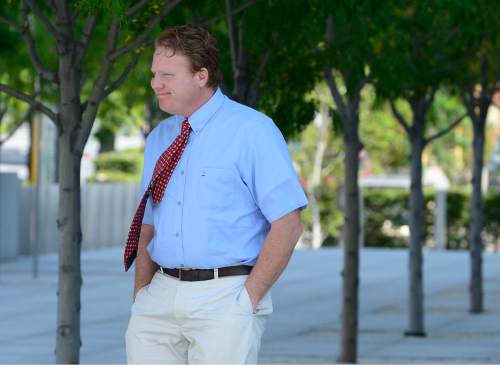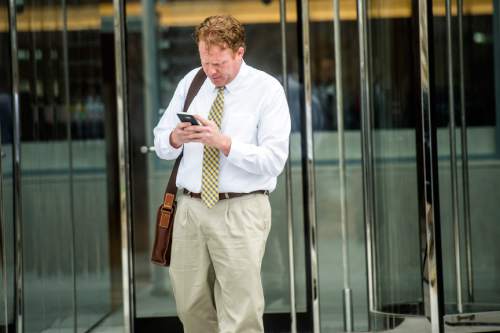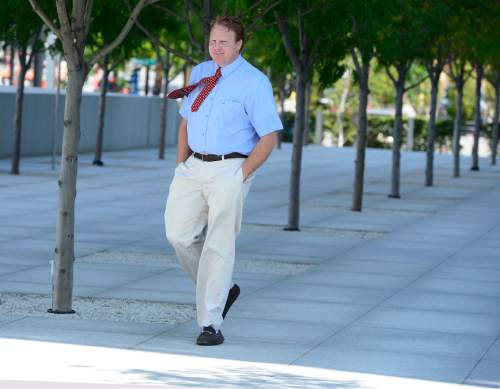This is an archived article that was published on sltrib.com in 2016, and information in the article may be outdated. It is provided only for personal research purposes and may not be reprinted.
Indicted St. George businessman Jeremy Johnson will act as his own attorney in a six-week trial scheduled to begin in less than a month.
A court docket entry submitted Monday evening said Johnson didn't change his mind in the five days since a hearing last week in which he asked to dump his court-appointed attorneys and represent himself.
After a series of stern warnings about the pitfalls of defendants in criminal cases acting as their own attorneys, U.S. Magistrate Judge Paul Warner said last week that Johnson had a right to represent himself. But even after Johnson repeatedly said that's the route he wanted to take, Warner gave him until Monday to decide for sure.
The entry into the court record on Monday means wife-and-husband attorneys Rebecca and Greg Skordas are no longer on the case.
Johnson also said last week he opposed Warner's proposal to appoint Greg Skordas as "standby" counsel, a role in which he would advise Johnson on the law and court rules but would not conduct his defense during the jury trial that's to begin on Feb. 1. Warner said in his order that he would appoint standby counsel soon.
The court on Monday also made public Johnson's motion asking to represent himself. In it, Johnson says he wanted a new attorney because of a previously undisclosed conflict of interest between Rebecca Skordas and a government witness she had represented. Warner, at the hearing last week, said he determined there was no conflict of interest.
Johnson also said the Skordases didn't have time to prepare for a trial, given that they had only been on the case since July 2015, when they were appointed to replace attorneys Ron Yengich and Chelsea Koch, who had withdrawn apparently because of a conflict created by a lawsuit against Johnson by the Federal Election Commission. A previous attorney, Nathan Crane, also had asked to withdraw.
Johnson faces 86 charges related to his operation of his online marketing company called I Works. The main allegations say Johnson and three other top employees committed bank fraud by creating shell companies to allow them to continue to charge consumers' credit and debit cards after I Works had been placed on a watch list by Visa because of a large number of chargebacks.
Johnson had steadfastly denied the charges and said he acted on the advice of a credit card processor that worked for Wells Fargo Bank and that he had disclosed his involvement in the new companies that were registered under the names of other people.











